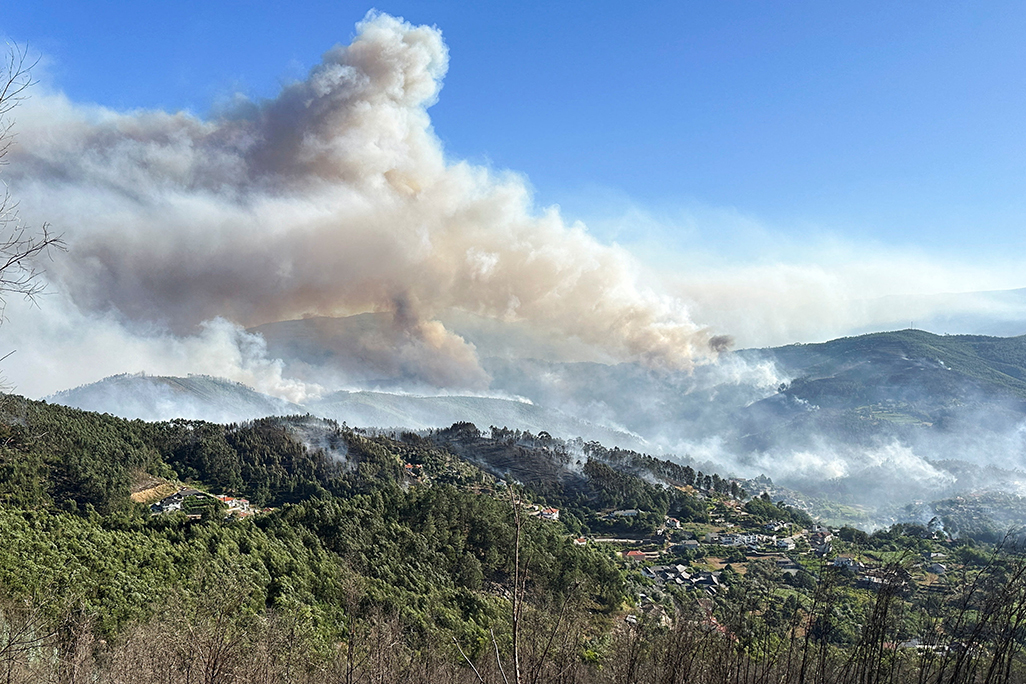More than 1,300 firefighters backed up by a dozen waterbombing planes battled three big wildfires in central and northern Portugal on Tuesday, with authorities putting most of the country on red alert for fires after weeks of hot weather.
In the Arouca area, some 300 km (185 miles) north of Lisbon – where the largest of the fires has been raging since Monday -the civil protection service evacuated several dozen villagers from their homes and closed the scenic trails of Passadicos do Paiva, a popular tourist attraction.
“It’s desperate to see this … we need help, we need air support,” said Rafael Soares, a resident of the village of Canelas, recalling a devastating wildfire last September which burned 6,000 hectares (15,000 acres) of forest near Arouca.
He blamed the fires on droughts linked to climate change that have left the area’s forests bone-dry.
Further north, a wildfire has been raging since Saturday in the Peneda-Geres national park near the Spanish border, enveloping nearby villages in thick smoke that led to orders for residents to stay at home on several occasions.
Spain sent several waterbombing aircraft to help control the flames in the area.
Three wildfires were raging in Spain’s region of Castile and Leon early on Tuesday, the most severe one near Avila, about 100 km (62 miles) west of Madrid. People in the town of Mombeltran were ordered to remain inside due to the smoke.
Hot and dry summers are common across the Mediterranean region, but more intense heatwaves have contributed to destructive wildfires in recent years amid fast-rising temperatures around the globe.
Turkey has suffered dozens of wildfires in recent weeks as temperatures have soared, and 10 firefighters were killed last week battling a blaze in the central Eskisehir province.
At the weekend, several villages in Greece were evacuated and five people were injured in separate wildfires.






Click here to change your cookie preferences